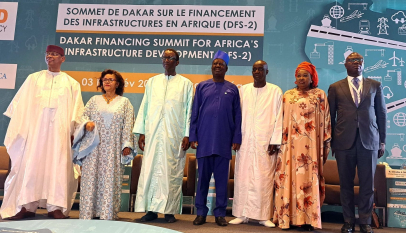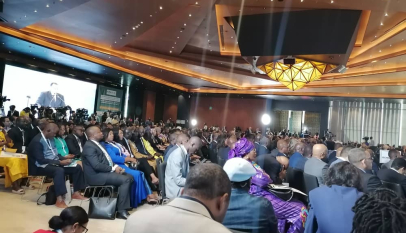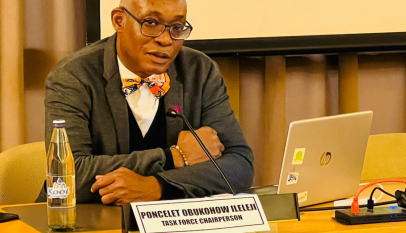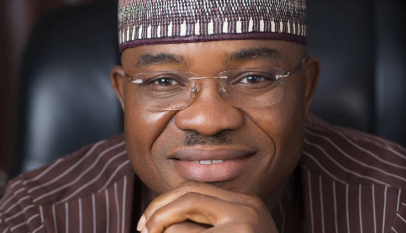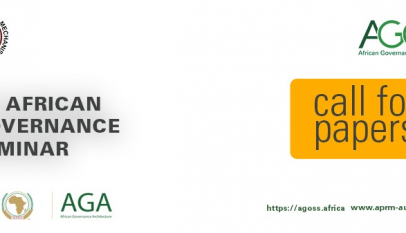ANALYSIS | What should Africans expect from South Africa’s leadership of the AU?
Last week, President Cyril Ramaphosa of the Republic of South Africa (RSA), addressed a gathering of his country’s ambassadors and heads of mission accredited to African countries, cabinet ministers and members of the diplomatic corps, in Tshwane, Pretoria; as South Africa assumes the one-year rotational chairship of the African Union for 2020
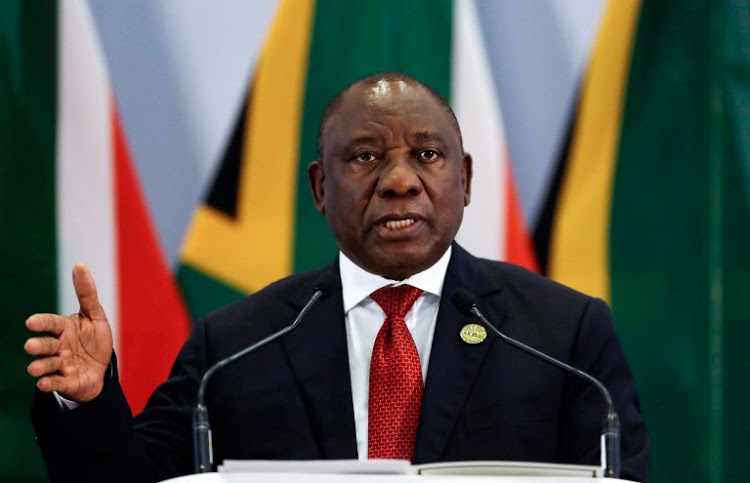
Ramaphosa will be succeeding President Abdel Fattah el Sisi of Egypt, who was AU chair for 2019, having also taken over from President Paul Kagame of Rwanda, whose tenure was particularly remarkable for its many outstanding successes including the much acclaimed AU administrative and financial reform and the launch of the Africa Continental Free Trade Agreement (AfCFTA). While at the helm, it is said, Kagame “elevated the AU chair to a level not seen before”.
This would be South Africa’s second shot at chairing of the continental body, having in July 2002, chaired the seminal session that officially birthed the African Union, as successor to the Organisation of African Unity (OAU). RSA’s first chairing of the AU under the leadership of President Thabo Mbeki was indeed remarkable!
Amongst others, Mbeki’s achievements were overseeing the transition from OAU to AU; being the architect of the New Partnership for Africa’s Development (NEPAD) now African Union Development Agency (AUDA-NEPAD) as well as overseeing the establishment of the AU’s Peace and Security Council (PSC) and adoption of the declaration on the Common African Defence and Security Policy (CADSP).
Ramaphosa had told the gathering of RSA’s top diplomats and policymakers that his country’s chairship of the AU in 2002 had presented it with a unique opportunity to build a lasting legacy for the continent adding that the 2020 chairship “should also present us with opportunities, albeit at a challenging time for both our country and the continent.”
“In some countries political and civil instability persist. Violent conflict continues to hamper our efforts to achieve continental peace and development. As a result, certain events on the continent have attracted world attention. I am convinced that some of these occurrences need the intervention of those who are able to assist African countries to find solutions. But in some cases these interventions seem to be driven by ulterior motives. This seems to be the case at least with Libya and South Sudan,” said the incoming AU chairman.
Consequently, Ramaphosa said his strategic objectives as AU chairman would be promoting RSA’s continental and domestic objectives; supporting integration; economic development; trade and investment; as well as driving the implementation of the AU’s Presidential Infrastructure Champion Initiative (PICI), in support of the AfCFTA. Others were advancing gender equality and women’s empowerment; combating violence against women and girls (VAWG); strengthening cooperation between the AU and UN; as well as promoting peace, security and advancing efforts to silence the guns in Africa.
AfCFTA, economic integration and job creation
The South African President emphasized the need for the creation of more economic opportunities for young Africans noting that the AfCFTA offered “unprecedented opportunities for development” to Africa. He said the AfCFTA would “boost intra-Africa trade, reignite industrialization, and pave the way for the meaningful integration of Africa into global value chains and the global economy in general. Africa is diversifying its international partnerships, broadening the scope of cooperation with various international bodies and countries.”
Moreover, Ramaphosa said at the top of RSA’s agenda as chair of the AU would be deepening economic integration, describing the coming into force of AfCFTA as a “historic moment” that all African countries “must seize” by implementing the Agreement “with purpose and determination” towards the realisation of a prosperous Africa, as enshrined in Agenda 2063. “We must undertake the detailed work, extensive consultation and complex negotiations required to give life to this agreement. In this regard, South Africa will work with President Issoufou of Niger, who is the AU Champion on Continental Economic Integration.”
“South Africa will need to be pro-active and assertive in seeking common approaches on issues like tariff lines, rules of origin, custom controls, trade in services and new generation issues like competition and intellectual property. We will also need to address issues like the ease of doing business in different African countries. We know that the AfCFTA will only become a reality if the infrastructure between African countries is developed,” Ramaphosa said.
PICI: Accelerating continental infrastructure development
President Ramaphosa said infrastructure was at the core of Africa’s social, economic and political challenges, describing at as crucial for inclusive growth, sustainable development and industrialisation. He said, as the Champion of the Presidential Infrastructure Champion Initiative (PICI), which is under the African Union Development Agency (AUDA-NEPAD), South Africa had a critical role to play in profiling continental infrastructure development, in support of the implementation of the AfCFTA.
An initiative of former South African president, Jacob Zuma, to accelerate regional infrastructure development through political championing of projects, PICI seeks to promote priority infrastructure projects for high impact results. The overall goal of the PICI is to promote socio-economic development and poverty reduction in Africa through improved access to integrated regional and continental infrastructure networks and services, working in partnership with the Programme for Infrastructure Development for Africa (PIDA).
“In this role, South Africa can also develop linkages between the SADC Regional Infrastructure Development Master Plan and the Presidential Infrastructure Champion Initiative. On this basis, it is proposed that South Africa hosts a High Level Forum on Infrastructure during its term as AU chair,” Ramaphosa told the audience.
Gender equality and women’s empowerment
President Ramaphosa highlighted as another pillar of RSA’s agenda as AU chair, the empowerment of women, with a particular emphasis on promoting financial and economic inclusion as well as combating gender-based violence (GBV).
“On women’s financial and economic inclusion, South Africa will work with the AU’s Women, Gender and Development Directorate [WGDD], which is responsible for leading, guiding, defending and coordinating the AU’s efforts on gender equality and development. We will work closely with the AU Leader on Gender and Development, President Nana Akufo-Addo of Ghana, who has already launched the Gender and Development Initiative for Africa in 2017 as his flagship programme,” said the incoming AU chairman.
President Ramaphosa referenced the UN’s 2009 World Survey on the Role of Women in Development, which he said, had shown women’s having equal access to financial and economic resources as being critical for the achievement of gender equality and sustainable economic growth and development.
“In undertaking this work, we must look beyond ‘micro-finance solutions’ to financing that will grow businesses of women. The goal is to ensure that women and women-led businesses have access to and are able to use multiple financial services as tools to develop their financial autonomy, allow them to contribute to economic growth and to enhance their capacity to take advantage of the opportunities that the future of work will bring,” he said.
The South African president said the extent and persistence of violence against women remains a major cause for concern in almost all countries on the continent. He however descried the fact that half of African countries still didn’t have laws specifically addressing the most prevalent forms of violence against women, adding that RSA’s chairship of the AU would “mobilise African countries to focus on prevention of violence against women and girls through, among other things, addressing the harmful social norms that contribute to and perpetuate such violence.”
“Harmful notions of masculinity and social attitudes that accept violence need to be challenged and be replaced by norms that promote gender equality, respect and non-violence. We also need to address discriminatory laws in African countries that disadvantage women and look to international instruments like the ILO Convention on Violence and Harassment as means to combat sexual harassment and violence,” he said.
South Africa’s chairship of APRM, CAHOSCC
In 2020, South Africa is also assuming the chairship of the African Peer Review Forum (APR Forum) as well as that of the Committee of African Heads of State and Government on Climate Change (CAHOSCC). The APR Forum is a Committee of Participating Heads of State and Government of the Member States of the AU who have acceded to the African Peer Review Mechanism (APRM). APRM is the AU’s self-assessment instrument focused on tracking the implementation of the Union’s key governance initiatives including monitoring and evaluation for Agenda 2063 and Agenda 2030.
Ramaphosa said the chairship of both APR Forum and CAHOSCC aligned with RSA’s responsibilities and priorities as chair of the AU, noting that the promotion of economic integration and respect for human rights depended, to a large extent, on the promotion of good governance. “As the Chair of the African Peer Review Mechanism in 2020, South Africa will be primarily responsible for driving the APRM’s good governance agenda. The delivery of the good governance through democratic practice and economic growth reduces political tensions in countries with social divisions.
“Importantly, the APRM is now an autonomous entity within the AU’s Structures and has expanded its mandate to cover tracking and monitoring implementation of Agenda 2063 and the United Nations Sustainable Development Goals. It has also developed an early warning system for conflict prevention on the continent, in the context of harmony and synergy between the APRM, the African Peace and Security Architecture, and the African Governance Architecture,” he said.
‘Silencing of the Guns in 2020’
The AU’s annual theme for 2020 is: “Silencing the Guns: Creating Conducive Conditions for Africa’s Development.” As chair of the AU, South Africa will be directing all peace and security initiatives on the continent including the AU’s Peace and Security Council (PSC), the standing decision-making organ of the AU for the prevention, management and resolution of conflicts. Therefore, as efforts to silence the guns in Africa takes centre stage and gain greater traction in 2020, President Ramaphosa is expected to be the driver of that lofty aspiration.
“The three main priorities for South Africa’s chairship – economic integration, women’s empowerment and good governance – must be underpinned by the promotion of a peaceful and secure Africa. As South Africa’s Chairship will coincide with the end of AU’s aspiration of ‘Silencing of the Guns in 2020’, it will be important to take stock of the achievements and challenges. This is particularly important for us as South Africa is the AU appointed champion on AU-UN cooperation on peace operations,” he said.
Ramaphosa said South Africa’s leadership of the AU will accord a special attention to two major intractable conflicts on the continent (Libya and South Sudan) where, he said, RSA was “already actively involved in seeking solutions. In South Sudan, we are engaged both bilaterally and multilaterally, in particular as Chair of the High-Level ad hoc Committee on South Sudan, known as the C5. South Africa is a member of the AU High-Level Committee on Libya.”
“Our efforts will aim at affirming South Africa’s commitment to peace, security and stability on the continent and ending the humanitarian catastrophe and displacement of people in those countries. Since the Chairship also coincides with South Africa’s third tenure as a non-permanent member of the UN Security Council, South Africa should promote cooperation between the three African members of the UN Security Council and the AU’s Peace and Security Council,” said the incoming AU chairman.
Prospects and challenges
As South Africa takes over the leadership of the AU, pundits have been making predictions, as to what direction its term will take. Although the AU theme for 2020, the guiding framework for all terms, is about silencing the guns, many experts are of the opinion President Ramaphosa will focus largely on addressing domestic economic problems at home and the easier task of fostering economic integration on the continent – against the much more difficult tasks of addressing human rights, peace and security challenges on the continent.
The South African president had himself identified as his continental priorities: economic integration; intra-African trade and investment; infrastructural development; gender equality and women’s empowerment; as well as silencing the guns. Although most experts have mixed expectations about Ramaphosa’s chairmanship of the AU, what most of them have almost unanimously agreed upon is: he would work aggressively towards the implementation of the AfCFTA.
Irrespective of how significantly peace and security feature in South Africa’s stewardship of the AU, what is pretty clear to all discerning minds including the top leadership of the continental body, is the glaring certainty of the impossibility of Africa’s complete silencing of the guns by the end of 2020! Another actuality that will obviously shape the outcome of Ramaphosa’s chairmanship of the AU is the litany of South Africa’s internal socioeconomic woes. Chief among these challenges are the rising trends of the scourge of violence against women and incidents of xenophobic attacks against foreigners, particularly African citizens.
It would be recalled that, in September 2019, President Ramaphosa had to cancel his scheduled trip to the UN General Assembly in New York, at the last minute, as a result of the spate of xenophobic or rather Afrophobic attacks in the country at the time. Again, in December 2019, the president had to cut short his trip to the inaugural Aswan Forum in Cairo, courtesy of the deepening crisis at Eskom, South Africa’s state power company, as many days of power cut threatened to push the country into economic recession.
When he receives the baton of leadership of the AU from President el Sisi at the 33rd Ordinary Session of the Assembly of Heads of State and Government of the AU, in Addis Ababa, Ethiopia, on Sunday, President Ramaphosa will be presented with a lifetime opportunity to leave his mark on the history of Africa’s leadership trajectory. Many pundits feel RSA’s stewardship of the continent at this time is a great opportunity to prove wrong those who accuse the country’s leadership of paying lip service to the plight of fellow Africans living in South Africa, hence their being targets of recurring criminal attacks.
If nothing else, Ramaphosa’s shot at the top continental job is an opportunity to repair South Africa’s battered image in the eyes of fellow Africans. If he is eventually able to make good his promise of “economic integration” in the spirit of the AfCFTA, which also means ensuring other Africans are able to live freely and securely within RSA’s borders, history will surely be kind to him. Indeed the ball is now securely placed in his court. What he does or doesn’t do with it, is entirely for the sixty-seven-old veteran anti-apartheid activist cum trade unionist to decide!


